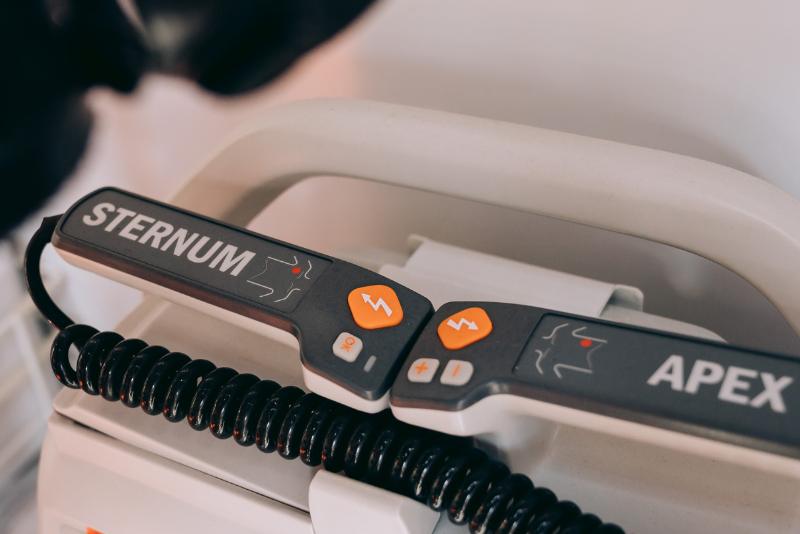It’s Monday at the end of a long day. The workweek is already accelerating at an alarming pace. Projects and client meetings are piling up, and unread emails are accumulating in your team’s inboxes. It’s going to be another late night putting in extra hours.
“See you tomorrow!”
The 25 year old new hire, who’s worn headphones while working all day, is leaving the office. It’s exactly 5 p.m. Have they been clock-watching? They might not seem particularly ambitious, so you might assume that’s the case.
Millennials in the workplace is a divisive topic. They tend to be labelled entitled, lazy, and arrogant, and prior generations often view them with skepticism and distrust. But Millennials aren’t going anywhere. In fact, Millennials now comprise more than one third of our workforce, and they’ll soon overtake Baby Boomers as the workforce’s dominant generation. We need to work well with them, just as they need to work well with us.
I manage a team that is, for the most part, comprised of Millennials. They’ve taught me a lot—namely that the negative stereotypes attached to them are not always warranted. While I’ve encountered a few less than desirable workforce candidates among the Millennials, mostly I’ve found them diligent, thorough, and meticulous. They work long hours when necessary, and they do so without complaint.
In this post I’ll break down what I’ve learned about Millennials, and share strategies regarding how to best manage and work with them.
Millennial Stereotype Myths Debunked
They’re Lazy
When you see a Millennial coworker leaving at exactly 5 p.m., they’re not necessarily doing so out of laziness. In some cases, they’re leaving because they’ve worked quickly and efficiently. They’ve finished what they needed for that day, and maybe even more. What we may see as cutting corners is often just a Millennial’s way of tightening up an inefficient process. Millennials prefer to work smarter—not harder.
Case in point: one of my Millennial employees is currently creating a program that transfers medical benefits plan details from Excel to InDesign, which saves our communications team immeasurable time in lifeless, manual labor. Rather than copy and paste each parcel of information, our communications team will be able to click one button and have the data they need flow into materials automatically in real-time. The result is the same, but the process is less time-consuming and more efficient—soon the team will be able to raise above the weeds and focus on more important strategic projects.
They’re Entitled
Millennials also tend to job-hop, ask for raises prematurely and are impatient with paying their dues—often a necessary stepping stone in many organizations to get ahead. Some employers may be quick to dismiss them as being entitled and believe this attitude is endemic in their generation.
In some cases, they are—but often there is more to this behavior. Job security has changed over the years, which seems to be affecting how Millennials approach work. In previous years, as an article in The Guardian acknowledges, hard work was rewarded with stability—employees were paid enough to both support themselves and invest in their futures. The environment in which Millennials were raised is different than previous generations’; they’ve experienced the most severe economic downturn since the Great Depression; one in four Millennials were laid off; watched their parents lose their jobs; student debt looms post-graduation; and the cost of living—particularly rent costs—has increased. Because work sometimes offers little financial security for younger Millennials, they believe it should at least offer fulfillment—or the job isn’t worth it. They seek fulfilling and meaningful work, in which they can add value quickly. This confluence of factors—desire for meaningful work and lack of job and financial security—have changed younger employees’ views on work’s value and purpose. Their presumptuousness is based not on entitlement, but on a different worldview.
[psa_quote]Desire for meaningful work and lack of job and financial security—have changed younger employees’ views on work’s value and purpose.[/psa_quote]They’re Disengaged
Some Millennials on my team would seem disengaged to outsiders because they wear headphones while they work. Some label this “career poison.” But my Millennial employees’ work quality is as good as—if not better than—their more senior coworkers’. I’ve learned that this is how some Millennials focus best. They listen to music and podcasts, or some just use headphones to block out noise. Wearing headphones at work is, for the most part, specific to younger generations—but that doesn’t mean they’re less engaged or less dedicated.
How Do We Best Work with Millennials?
Adjust Questions During Hiring
It starts with recruiting. Asking questions, rather than jumping to assumptions, is important when hiring anyone, but especially critical when interviewing Millennials, because many employers could be more biased by the typical Millennial stereotypes.
If you have reservations about a candidate, spend more time on addressing those concerns. For instance, Millennials are often viewed as a generation not performing well under pressure. If you’re indeed worried that a candidate is easily stressed and flustered, focus the interview more on discussing descriptive examples of how they handle stress. Dig deeper than just asking the standard stress related questions. Make it more of a conversation of their past professional experiences.
If the candidate has little to no job experience, but you can still gauge their attitudes and work ethic by asking about how they handled group projects in school, or pressing deadlines with tests and deliverables. You can also read non-verbal cues; if a candidate’s eyes widen at the mention of overtime or rushed deadlines, they may not be as willing or capable as other candidates.
Adjust Management Styles
Not all people thrive under the same management style. Prior generations are more comfortable with direct and even harsh feedback than Millennials are. Many Millennials are most receptive to tactfully-worded and constructive feedback. If managers remain resolute in their ways—“I’m delivering feedback the way I prefer!”—they likely won’t get the most out of their employees, no matter the generation, but especially working with Millennials.
For instance, focusing on their accomplishments while offering resources and recommendations on how they can improve their performance is far more effective, than just criticizing their shortcomings without any support.
I’ve also developed a more hands-off approach with my Millennial team—partly because I trust them, and partly because they work best under a laissez faire management style. When I do check in on them, it’s mostly about career-pathing, making sure they have the necessary resources and empower them to do their jobs; I understand they want meaningful work, so I figure out how to best provide that while balancing company interests.
While the negative stereotypes are warranted at times, Millennials are not inherently flawed, nor are they deserving of the negative stereotypes that have been thrust upon them. They’re different than other generations, and these differences are often very positive. It is important that us, employers, understand who they are and what motives them to leverage their talents and foster an innovative, growth-oriented organizational culture, which in turn will ultimately improve customer service.
Contact PSA
If you have questions about working with Millennials or need assistance in creating a company culture that fosters Millennial growth, please feel free to email me at djamison@psafinancial.com.




